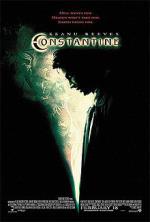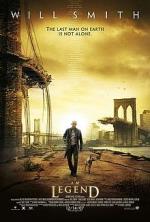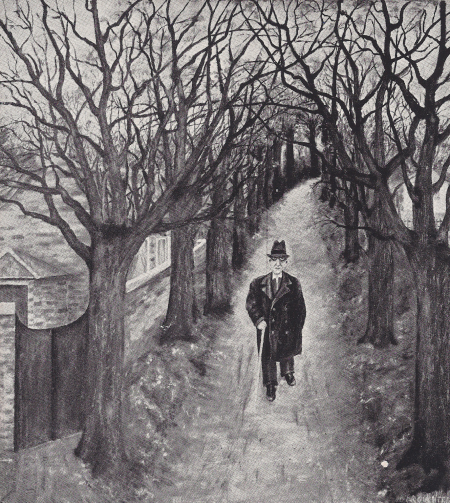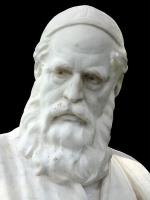 I’ve only seen two films by Francis Lawrence. You probably know him from The Hunger Games: Catching Fire. I haven’t seen that. I try to avoid films that are aimed at that just about puberty demographic. Plus the series is apparently where reasonably interesting directors go to cash in. The first one was directed by Gary Ross, a man who really does have greatness in him and made one excellent film (Pleasantville) and one good film (Seabiscuit). And then didn’t do anything much for ten years before deciding to get in on that middle-school money.
I’ve only seen two films by Francis Lawrence. You probably know him from The Hunger Games: Catching Fire. I haven’t seen that. I try to avoid films that are aimed at that just about puberty demographic. Plus the series is apparently where reasonably interesting directors go to cash in. The first one was directed by Gary Ross, a man who really does have greatness in him and made one excellent film (Pleasantville) and one good film (Seabiscuit). And then didn’t do anything much for ten years before deciding to get in on that middle-school money.
Lawrence is rather a different bread of director. He spent the first decade of his career making videos for songs aimed at tone deaf children. So when he turned to making films, well, what do you expect? What I expect are visually stunning films that tell incoherent stories filled with stereotypes rather than characters spouting dialog that sounds like it comes out of an Ed Wood pulp novel he dashed off in an evening. (Ed Wood was known for being able to crank out books fast; he might have done great things if he had slowed down.)
I don’t know anything about Lawrence’s religious beliefs, but based upon Constantine and I Am Legend, it is hard not to think that he wasn’t raised Catholic. God is the salvation in both movies. In the first, John Constantine acts a kind of antihero Jesus Christ who saves the world from Satan. In the second, Dr Robert Neville dies to save the woman and child who bring his cure to the last outpost of humanity that is—Wait for it!—at a church. He also manages to remove all the interesting moral ambiguity of Richard Matheson’s novel.
 Let me just make a note of something here. The remake of Night of the Living Dead better captures what Matheson was going for than any of the films based upon his book. Matheson is one of the great unheralded science fiction writers. In general, he was treated well by directors. Of course, he was a great screenwriter himself. He also wrote some of the best episodes of The Twilight Zone. And he was funny as hell as you can see in films he wrote like, The Raven and The Comedy of Terrors. But he’s gotten worse and worse treatment on the screen as the special effects have gotten better and better.
Let me just make a note of something here. The remake of Night of the Living Dead better captures what Matheson was going for than any of the films based upon his book. Matheson is one of the great unheralded science fiction writers. In general, he was treated well by directors. Of course, he was a great screenwriter himself. He also wrote some of the best episodes of The Twilight Zone. And he was funny as hell as you can see in films he wrote like, The Raven and The Comedy of Terrors. But he’s gotten worse and worse treatment on the screen as the special effects have gotten better and better.
I just watched Constantine again and what really struck me is how boring the antihero has become. Sure, the antihero is more interesting than the straight hero, which we see constantly in the superhero films and anything that Bruce Willis ever stars in. But we also get the straight hero in I Am Legend, where Neville risks his life to save his dog. It’s a reversal on the old “dog villain.” Lawrence has given us the “dog hero”! Hero or antihero, it’s all just trite Hollywood stereotype: the crowd goes wild as the culture dies.
It seems to me that we deserve more interesting characters. But we will never have them so long as we tell stories of good versus evil. And that is the problem with Christian theology, or at least the pathetic made-for-children Christian theology that Americans follow. Why is it that poor people are so much more likely to steal than rich people? And when rich people steal (or murder), why are they so much less likely to be punished? Why is it that when HSBC launders a billion dollars in drug money, no one goes to jail? But commonly, when a junkie is caught with a couple of balloons of dope, he’s thrown in a cage for years for the crime of intent to distribute what is, after all, a vegetable product?
I have a serious question for you: shouldn’t those rich people be found culpable for all the desperation theft of the poor? I think Jesus would see it that way. Unfortunately, he doesn’t exist and the rich know that; that’s why they act as they do.
At the end of Constantine, the earth has been saved from all the demons taking over. But I look out on the world and I see that the demons have taken over. If you are a Christian, you must see this. You must see that the money changers and the usurers are not only thriving but that our entire culture worships them. Who is the most important man when it comes to education reform? Why it’s Bill Gates whose only claim to knowing anything is that he made a lot of money, primarily through luck. We have television shows like The Apprentice and The Shark Tank that treat rich people as though they are better and more knowledgeable than the rest of us. And the whole society widely believes that the rich are moral and the poor are immoral—based largely on things they’ve learned from the Bible. Yes, the Bible says many good things too and there are many earnest and faithful Christians. It is just that they are a small minority.
Most of what is wrong with our society and our entertainment comes from the ridiculous notion that there is some justice in the universe. And so we get our heroes and antiheroes, and our villains, charming and not. I’m not suggesting that our entertainment is what debases our society. It mostly works the other way around. But the career of someone like Francis Lawrence shows us that there is a feedback: horrible cultural icons lead to horrible entertainment leads to the elevation of another mediocrity whose money making abilities lead to another horrible cultural icon. Go team!
 I’ve had a very pleasant night. Yesterday, I learned that we are going to go to the Santa Clara Antiques Roadshow. This is kind of a big deal, because we are in possession of a badly damaged painting by a great American Primitive painter Bernard Frouchtben, and we are very keen to learn if it would be worth the thousands of dollars to restore it. Don’t get me wrong: if I had the money, I would restore it regardless. The painting is fabulous and Frouchtben deserves it. A great wrong was done to him and to art itself in the way it was neglected.
I’ve had a very pleasant night. Yesterday, I learned that we are going to go to the Santa Clara Antiques Roadshow. This is kind of a big deal, because we are in possession of a badly damaged painting by a great American Primitive painter Bernard Frouchtben, and we are very keen to learn if it would be worth the thousands of dollars to restore it. Don’t get me wrong: if I had the money, I would restore it regardless. The painting is fabulous and Frouchtben deserves it. A great wrong was done to him and to art itself in the way it was neglected.



 On this day in 1048, the great mathematician and poet
On this day in 1048, the great mathematician and poet